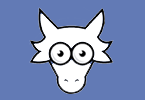Knowing how to become a better writer will give you a road map to success. Here are some road signs to follow.
Attitude
- Writing is a messy process. It rarely goes as planned. Characters and plot might surprise you at the most inconvenient moments. The right words might struggle with you to the point of destroying your delete key. It’s not always muse and unicorns and fun. Acknowledge and embrace that. The satisfaction that comes at the end of a good creation is worth it all.
- Your first draft is never perfect. There’s always room to improve, and as a writer, it’s your job to constantly chase improvement. Do so by soaking up books in the genre you write in, by reading books and magazines about writing, and by going to workshops and getting edited by professionals.
- Your twentieth draft is never perfect, either. But at some point, you have to stop editing, take a deep breath, and toss your story out there. Don’t be afraid of that moment. It may bring you great joy and release you to work on your next story.
- Make writing a priority. If you treat yourself as an aspiring writer, all you’d ever do is aspire. Call yourself a writer, and be sure to write. Find time to write, no matter how busy you are.
Skills
- Study writing. Learn all about point of view, character development, plot structure, suspense, your chosen genre(s), language, and style. Study books and magazines on writing, and attend workshops or online courses. Ask other writers how to become a better writer. There’s always something new to learn.
- Read. Decide what genre(s) you want to write in, and read relevant fiction. Make yourself familiar with overused plots, common tropes, and other elements to avoid. Analyze what works for you in your favorite fiction stories and try to emulate that.
- Practice, practice, practice. You’ll get nowhere unless you actually spend a lot of time writing. If you don’t feel ready to write a complete story yet, choose a topic you’ve learned about, and give yourself a writing exercise about that topic.
- Don’t try to do it all together. There are many aspects to good writing. You won’t master them all at once. Focus on them one at a time until you achieve some mastery, and then weave in a new aspect. Be patient with yourself, and allow yourself to write less-than-stellar fiction as you learn.
Editing
- Writing a great story is all about editing a less-than-great draft. Don’t fear this process. Look forward to it as your opportunity to make your words shine. If you’re wondering how to become a better writer — keep this notion firmly in your mind.
- Separate writing and editing. Writing is a wild, creative process. Editing is an analytical process. When you write, let go. When you edit, consider every word. Mixing the two will slow you down and bring on writer’s block.
- You can’t perfectly edit your own work. Be prepared to ask for help from family, friends, beta readers, critique groups, and professional editors. Encourage them to be critical and helpful. Ask them what worked for them and also what didn’t.
- Don’t chase every advice you get. Get multiple reviews on each piece, and crosscheck them to see what patterns emerge. If different people think vastly different things about an aspect of your writing, it’s most likely a matter of taste. If different people bring up the same issue as problematic, fix it fast.
- You know your own work best. Don’t accept feedback as holy decrees. Readers may try to take your story in directions you hadn’t intended. Don’t let them. In the end, stay true to your own story.
Still Wondering How to Become a Better Writer?
The only way to better writing goes through writing. Study, read, write, get feedback, edit. Repeat. And above all, don’t despair. There is only one type of successful writer: the one who never quits. Keep at it.




